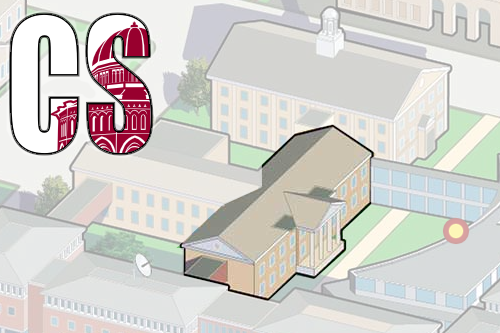Developing Sign Language First Technology to Improve Information Accessibility
Shruti Mahajan
Worcester Polytechnic Institute
When: Thu, 11/9, 12:50-1:50pm
Where: Olin 107
Abstract: In the United States, American Sign Language (ASL) is the primary language of many deaf adults, and many deaf students receive classroom instruction in ASL while learning English as a second language. However, most interactive computing tools are presented and navigated exclusively in English, even those designed for deaf audiences. Making access to technology contingent upon a sufficient command of a second language creates significant barriers and access delays for deaf individuals.
My research takes a human-centered computing approach to build a foundation that advances understanding of how deaf individuals could work and learn in environments that are designed with their needs and preferences at the forefront. It investigates the feasibility and effectiveness of new SL1 technology, which will provide delivery of signed language (SL) content by allowing deaf signers to navigate and interact with technology completely in their first language (L1). I developed an SL-centric survey tool that enables users to create, distribute, and respond to surveys in SL. In my research, I conducted participatory and user-centric research with deaf participants to iteratively optimize user interface technology.
I present novel interaction design paradigms that create truly accessible technology for deaf SL-signers. This facilitates lifelong learning, enhances access to educational content such as STEM topics, improves career opportunities, and allows SL-based organization of SL corpora, assessments, dictionaries, learning and employment resources. Lastly, I contribute to the advancement of collaborative, human-centered methods and research by working toward creating guidelines for conducting inclusive computing research for and with the ASL community.
Bio: Shruti Mahajan is a Ph.D. candidate in the Human-Computer Interaction lab, Computer Science department at Worcester Polytechnic Institute (WPI), MA. Her research interests are in the field of Human-Computer Interaction (HCI). In her PhD dissertation work, she focused on designing and studying user interfaces in American Signed Languages for the Deaf community. Additionally, she also works with tangible user interfaces that include Augmented Reality and smart fabrics of the future. Her work has been published and recognized at top computing HCI conferences like the Conference on Human Factors in Computing Systems (CHI) and the Conference on Computers and Accessibility (ASSETS) conferences. Across all her research projects, she cares deeply about conducting user-centered and participatory research with careful consideration of how technology impacts society.
Besides her research, she actively engages in and initiates mentoring and outreach efforts to promote inclusivity and diversity in the field of computing. Outside work, she enjoys science fiction books/movies, and learning new languages!
